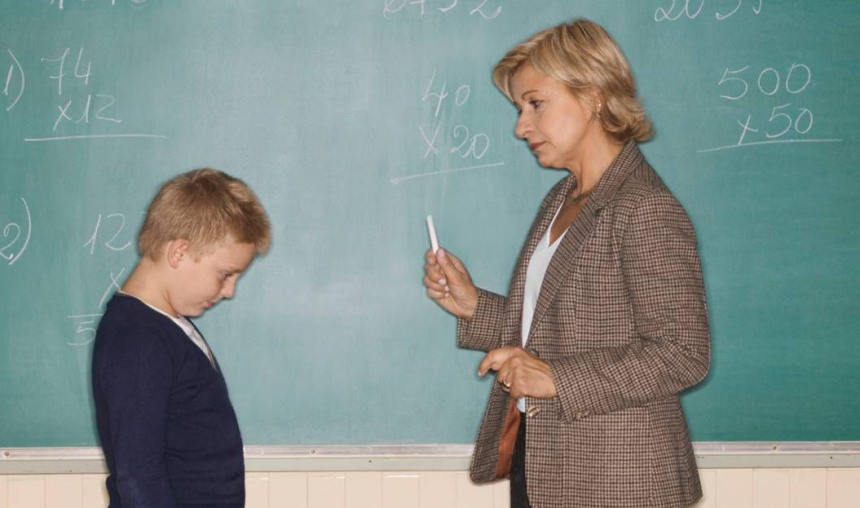Bringing into use the method of corporal punishment — despite the presence of laws for stopping children from being physically abused — to instilling discipline among students, is misplaced. Physically abuse by teachers of children hardly improves the latter. Instead, it produces hate and resentment in children towards their teachers and schooling. An instance, a student is punished for being late for school or not wearing uniform or for absenting her/himself from school; this has never stopped by punishment — physical or verbal.
These incidents of abuse on most occasions remain unreported and often are downplayed. Despite a Supreme Court ruling given in 2000, banning corporal punishment in schools, such abuse has no end in sight. Free and Compulsory Education Act (RTE) in 2010, also banned corporal punishment in schools. Also there are clear cut directions from the School Education Department banning all forms of corporal punishment in all educational institutions. The UN Convention on the ‘Rights of the Child ‘ is paramount in this regard.
Physical abuse of children, while inside school, is unacceptable, especially in a civilized society. Today the world has evolved in education; sufficient research and study material done on human behaviour is at our disposal today. True, physical punishment works at times, but there are more productive and civilized methods to discipline a child and to obtain other important objectives.
What is tragic but true is that these civilized methods of disciplining a child do not work always. Psychologists discount the system of ‘using physical punishment’ to teach discipline and call it a myth. However, there are times when law breaking students do not respond to kind words and other nicer ways for instilling discipline.
By rewarding badly behaving children and making them undertake tasks that raise self-worth certainly yield good results. During the times gone by, there were occasions when the most aggressive student was made class monitor. This method produced handsome results. A badly behaving child displayed a very apt and acceptable behavior. Such a child feels a sense of belonging and respected, a psychologically sound method producing good results. Needless thus is corporal punishment.
It is noteworthy that there are multiple modern ways of disciplining a child. Many children are more introvert and self-seeking; no less is the number of children having little willingness and do not respond to the motivational methods for learning. Gone are the days when children used to greet their teachers in or outside school; both felt proud. The modern ways of bringing up children have reduced considerably the feelings of respect and regard between them and their teachers; both serving and retired teachers.
The ‘International Day to End Corporal Punishment’ on April 30 has more academic interest; almost invisible on the ground. Just observing the day cannot change anything in actuality. There is a dire need to give wide publicity to the downside of corporal punishment as envisioned by the aforementioned international day. Practically applying the principles and objectives of the day is imperative.
Punishment must stand as a punishment if meted out at all. When the teacher/parent who punishes a child follows with a chocolate or money to pacify the child, the intended goal remains a far cry. And confuses her/him. Resultantly punishment, although uncalled for, does more harm than good. I have witnessed several cases where a teacher punishes a student but pacifies him/her soon through kind words. So do many parents. A fruitless exercise in the ultimate analysis. Let punishment remain as punishment.
All elders, including most importantly, parents and teachers must use healthy motivational talk and other civilized ways and means to discipline children while dealing with them. But whatever they do, they must do it in a way that the child moves forward and does not stumble. Education is not anything confined to books and to be learnt by heart just; education infact is a training for braving challenges and harsh realities of life apart from humanizing us to the pain of our fellow humans. Above all, education is to live and let live and contribute to world peace without harming anyone.
Arguably, punishing students to make them learn and perform in a better manner is unnecessary. It is in place to mention that most of the times, the fault lies with the working style and the methodology of a teacher. A demotivated teacher works casually and badly. This creates learning gaps for learners. Why punish these children for underachievement then?
Many times, a teacher finds her/him self in a hurry to finish syllabus. Thus teaching -learning activity becomes a formality to complete and obviously learning gaps remain. This systemic fault needs to be corrected; abusing children, innocents in this case, amounts to child rights violation.
Heavy workload, particularly at the elementary level, of teachers hits learning badly. Teaching six to eight subjects routinely is a back breaking task, to say the least. More so if there are less number of classrooms than classes of students. Experts dismiss having to teach so many subjects by a teacher. Two to four subjects for a teacher a day is a healthy and fruitful experience as is the case at 90% schools at the secondary level. If there is low performance of the secondary schools in spite of better facilities, that is unfortunate; its causes can be studied.
Discipline can be instilled in children, leaving corporal punishment out. One kind step is to make teaching-learning a happy, healthy and useful task. No learning is possible unless children show readiness. Social, economic and cultural background of children should never be counted. Reasons behind the bad behavior of a child must be discovered and counted. Better communication and better facilities at schools are a key for inculcating discipline among children.
(Author is RK Columnist and teacher by profession. Feedback: [email protected])








